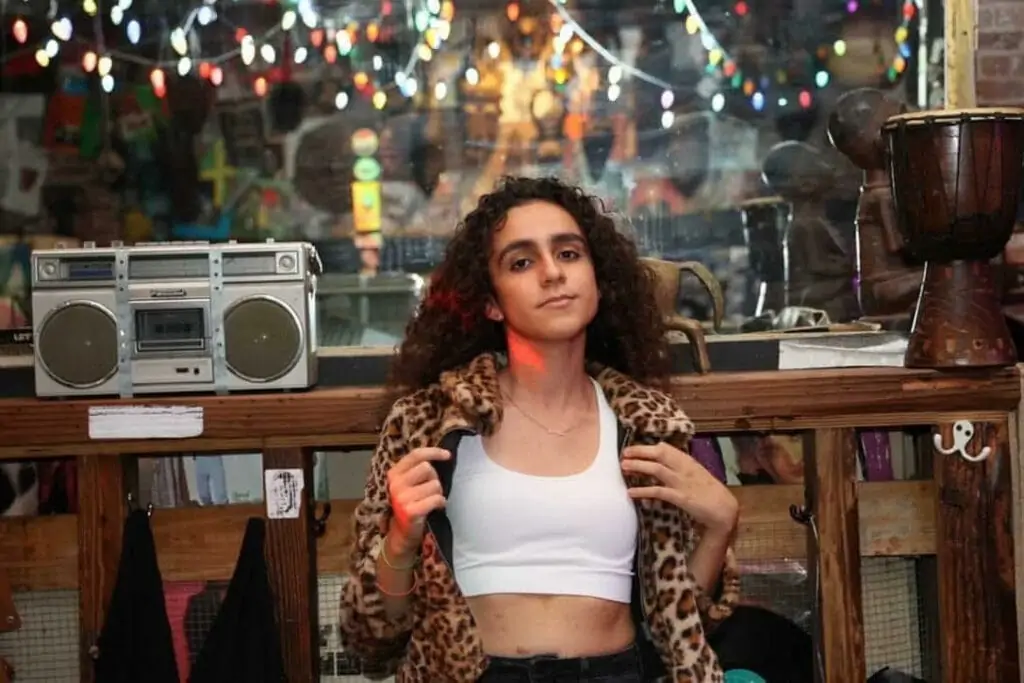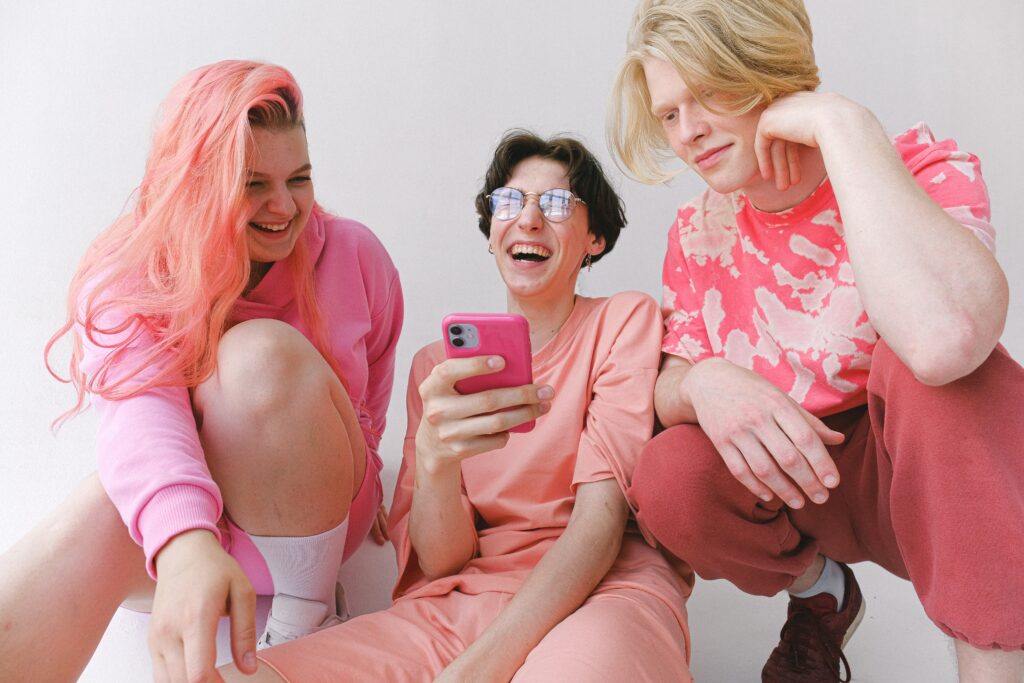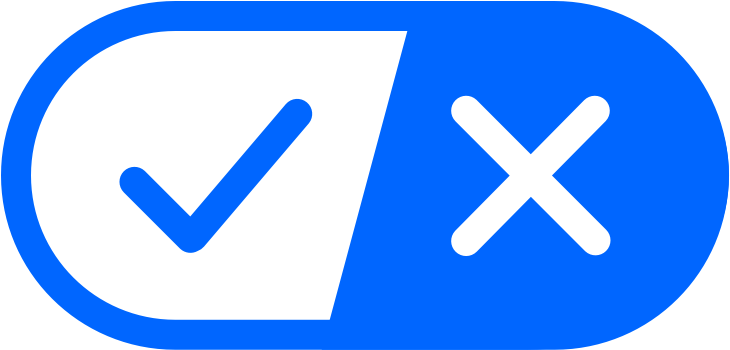Chrissy Ramos is a trans, Latina musician and producer who goes by the name Cramos. Raised in Florida and currently residing in New York, Chrissy has navigated the intersectional complexities of being bisexual, trans, and a person of color in a complicated world that can’t always make sense of even one of those identities let alone all three. She hopes to be a model for other girls like herself and is working hard to provide a platform to those that come after her.
I had the pleasure of learning more about Chrissy, her music and story, her mission as a producer and activist, and her thoughts on trans advocacy and allyship.
Introduction from Chrissy
Hey! My name is Chrissy Ramos, I go by the artist name Cramos and I’m a trans, Latina hip-hop artist. I’m also a content creator specializing in TikTok. I want to be the voice I never had growing up. I didn’t have any brown trans girls to look up to. I was all alone. I want to change people’s lives and inspire people to be who they are. I want to show all the little POC trans girls that we can do anything, show them that in spite of anything, our light can shine.
Chrissy Ramos
Interview with Chrissy
K: Tell me a little bit more about your background as a musician and writer.
C: I started music as a little kid; I started piano at 3, violin at 5, guitar at 13, the list goes on. I wanted to be involved in as many disciplines as possible, a lot of people were telling me I was spreading myself too thin but all that experience in different instruments helped translate to better songwriting for me. And while I was in high school, having the school instruments at my disposal was a blessing. Outside of the traditional learning environment, I was just surrounded by music. Being from a Latinx household, we put music to everything and everywhere so culturally it was a fit. I’d always wanted to do music as my career but it didn’t really seem reasonable.
Then when I was 10 and the Disney channel released A.N.T Farm, it changed my life. Pursuing music as my thing felt reasonable at that point and to little me, China Anne McClain became a huge role model. Once I’d gained more social liberty as I entered my teen years and started engaging with my peers out in the open, I took that passion into action. Hip-hop culture was everything for me and my peers; even friends that didn’t consider making a career out of music recorded raps they had written and released them on SoundCloud. My friends and I would freestyle in the car or when we were grabbing something to eat. All this made me feel more comfortable writing my own music. I studied and studied the artists I felt I could incorporate into my style, put hours into piecing apart every bar, every pocket, every beat from JID, Nicki Minaj, MF Doom, and more.
When I started writing though, I was scared. I was doubly in the closet, being bi and trans, and I was scared that no matter where I wrote my songs somebody would find them, so instead I would write in this hyper-hetero-masculine persona just trying to not be outed. It was at the time, an opportunity to prove myself when just a couple of years before, I had been made fun of and picked on for being too feminine. And it kind of worked, people bought it and my social cred kinda grew but it wasn’t the real me at all.
Right on graduation, I cut the hetero persona. I was obviously queer in every sense, but I hadn’t yet come out as trans because I was scared of my parents. Eventually, when I got to college at NYU I immediately came out as trans. That was the plan all along and I could finally start writing the music I wanted to write. I took on the artist name “Cramos” because it was what my bullies would call me in high school. When I started writing at first, I was whitewashing my music – stripping it of anything noticeably POC because the university I attend is very much a PWI and it was what my fellow music major students would vibe with; that’s what they rewarded.
When I had to go back to my hometown because of COVID, I’d realized just how much authenticity I’d sacrificed once again. I’d finally realized that there hadn’t been a single time in my life before where I was 100% authentic. Reconnecting with my people woke me up to the effect PWIs have on students of color.
I’m back in NYC now, and I’m starting to do shows at open jam sessions. I’m finishing up my debut album, and I’m making sure to be unapologetically queer, trans, POC, and Latina. I’m even using some old self-produced beats from high school, ones that formerly had the uber-masculine lyrics written to them, as a way of empowerment and reclamation.
K: You also run your own production company – what are your goals for the future?
C: My goals in the future are to elevate any trans person of color who wants to go on this journey with me. My goal isn’t to make my money off the production company or signed artists. That’s exploitation and I don’t rock with that. Especially when anybody coming in will have been exploited their whole life, as a person of color, and as a trans person.
I plan on using the production company’s website to have a centralized platform, a home for anybody signed. Anybody looking for that artists’ additional content will have to go to that website, where they’d see other trans artists of color. The nature of it will be much more like a collective than a production company/label. The only reason it’s set up as a label is so that I can retain my own publishing royalties, and so any signed artists can use centralized resources should the production company grow to that level.
Right now my main focus is my music and trying to make a living out of it. I’m not scouting anybody. I can’t find the right person. The right person will find me.
K: What are some challenges you’ve faced on your journey?
C: The list could go on forever. I feel like a walking statistic of POC transness. Through my time in the closet, I was in a deep depression and attempted suicide; I’ve been sexually assaulted; I’ve been fired for being trans. I’d been barred from participating in a women’s sports event I planned on signing up for because of that new Florida law this year. I’ve dealt with financial difficulties and varying levels of food insecurity, and some housing insecurity. I’ve had other family issues that I don’t feel comfortable even getting into. I’ve dealt with some medical challenges, and much, much more.
But even though I’ve gone through so much sh**, I’m grateful. I’m grateful it was me and not anybody else. My purpose is to be seen and to make music. Understanding all of these challenges and more on such a deep level allows me to harness that pain for good. Allows me to make others feel seen. And through the good I create from that pain, I hope to influence society in a direction where one day nobody like me has to go through any of that.
And in spite of everything I said, I’m happy now. Truly happy, and if anybody who is in a bad place at the moment, anybody who is in as deep a depression as I was in high school, can see that – then they can see that there is a light at the end of the tunnel and it gives them a reason to keep going.
K: What do you think advocacy for trans rights looks like in 2021?
C: Advocacy for trans rights means advocating for the intersections of transness. It means stripping the narrative that transness is a white woman thing and is instead an all race, all gender spectrum. It means a constant quest for more knowledge and re-education on what sex and gender mean. Most importantly it means recognizing that our oppression isn’t just some random guy saying a rude comment. Recognizing it’s systemic and those comments people say are no big deal happen every day and contribute to the violent culture surrounding our existence. It means remembering we are human.
K: How can the LGBTQ+ community at large be better allies to trans folks?
C: The LGBTQ+ community can start to address its own racism and transphobia. They can hold gay celebrities who are transphobic accountable. Also, and this is a big one, the LGBTQ+ community needs to stop using the word “LGBTQ+” when talking about only LGB people. Many programs and resources designed to help gay and bisexual people are advertised and promoted by the acronym “LGBTQ+.” It’s the best acronym for the community as a whole, but we need to start using words to describe who we’re actually talking about. Labeling a resource as “LGBTQ+” when it ignores trans people completely makes it very difficult for trans people to find anything to help us. This is especially true on the internet, where through search engine optimization, many of these gay resources tag transness as associated, causing even resources which explicitly say “LGB” or “Lesbian, Gay and Bisexual” to show up under a trans search query. It’s near impossible to find anything.
This attitude about using accurate phrasing translates to everything. For example, are we talking about women or are we talking about people who menstruate, people with cycles, people with boobs, people who can birth a child, estrogen-filled bodies, the list goes on. In any situation, this is important because not only does cisnormative language devastate trans people, which should be enough on its own, it also affects the very cis people perpetuating it. “Inclusive language” and “exclusive language” are terms that are great when talking about your own group, but I feel like many people haven’t truly internalized that inclusive language is accurate language and that exclusive language is ALWAYS fundamentally incorrect.
You can follow Chrissy on IG @official_cramos and on TikTok @official_cramos.







